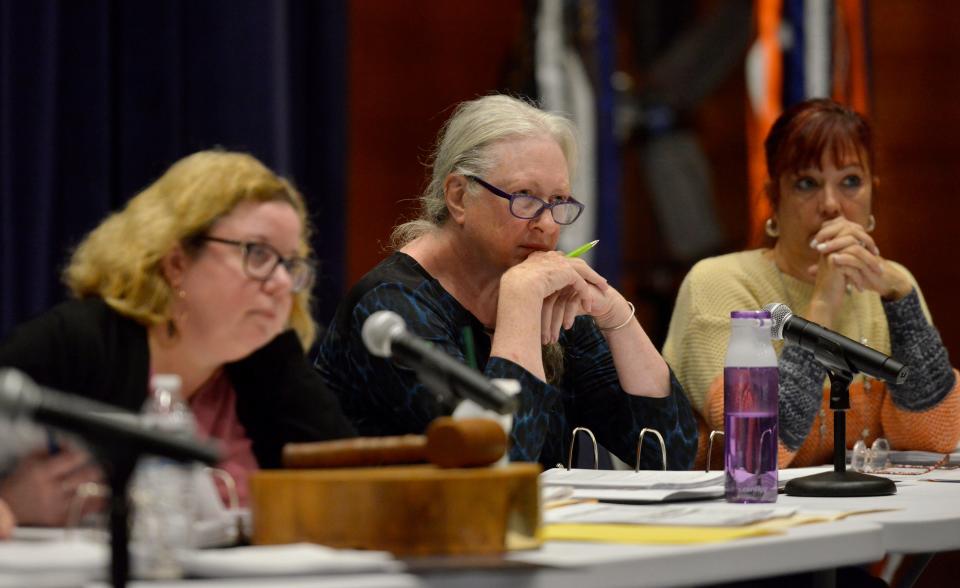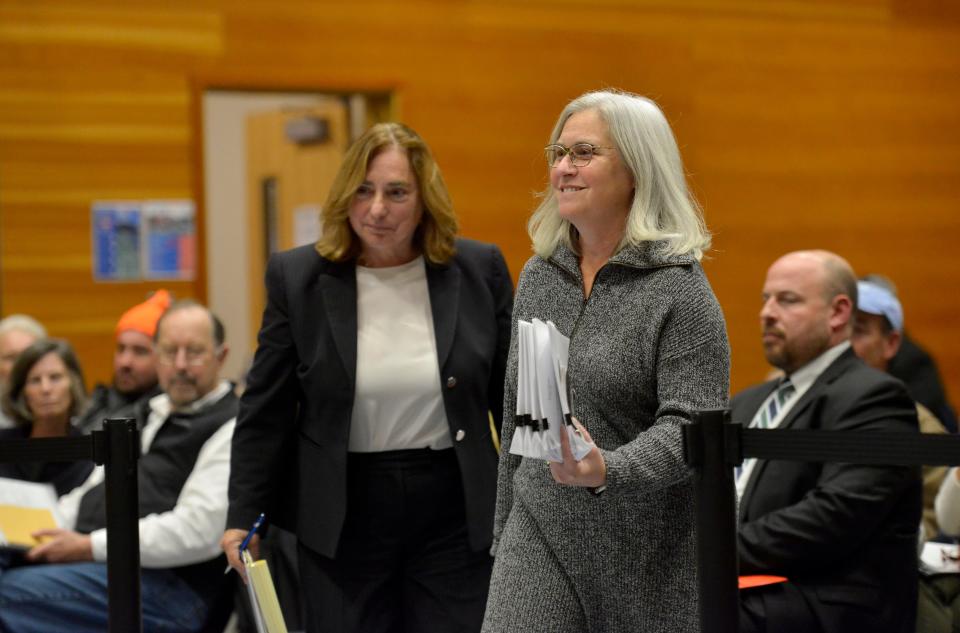Truro wraps up voter registration hearings, clearing way for Nov. 16 town meeting
The Truro Board of Registrars completed hearings Thursday on the 66 voter registration challenges filed with the town, wrapping up a contentious four-day process that saw nearly half of the challenged individuals either being taken off the voter rolls by the Board or removed prior to the week’s proceedings, according to records reviewed by the Times.
Raphael Richter, the resident who filed the challenges and once served on the Provincetown Select Board, said the hearings represented a “low point” for the town, resulting in the delay and disruption of the special town meeting. But he said they were ultimately necessary to preserve the integrity of Truro’s voter pool.

“I would describe this as hitting rock bottom,” Richter said. “We went through a process where our (town) meeting was delayed because voter registrations had to be investigated, and those investigations were, despite what anybody will say, I think clearly warranted by the results of that process.”
For the voter challenges, Richter said he cross-referenced names on a list of voters on the official Truro voters rolls who had registered on or after July 1 using publicly available tax, assessor and property information. That cross-referencing determined the list of individuals whose voter registration Richter said he challenged.
Attorney for some challenged voters decries process
Donna Brewer, an attorney representing several of those named in the complaints, said the process her clients went through was “inappropriate” considering the vast majority were deemed properly registered voters.

“The questions that were raised, the judgments that were made, were not reflective of protecting and getting clear the intent of the voter, and their focus of where they view their life to be,” Brewer said. “And for the people who are my clients … virtually every single one of them was found to have enough social, civic, emotional, domestic ties to qualify as a Truro voter.”
Much of the questioning in the hearings centered around how much time an individual spent in Truro. Although a factor in determining residency for voting purposes, Brewer said the law states a person can vote in a town they do not live in full-time.
“There is no minimum amount of time somebody needs to spend in a town in order to be a registered voter of that town,” said Brewer, a partner at Harrington Heep practicing municipal law. “The case law says unless there is compelling evidence to overcome the voters’ choice of where their domicile is, their choice of domicile should be respected.”
A person’s domicile, as outlined by the Secretary of State, is the center of one's business, social, civic and domestic life. Residence for voting purposes is not where one thinks their residence is or wants it to be, but rather it is an objective concept demonstrated by evidence of a person’s actions — the amount of time spent in a place, former residences, former voter registration, future plans, income taxes, bank accounts, telephone listings and places of employment.
Residents fight back
Residents who appeared before the Board throughout the week spoke of defending their right to vote and feeling targeted by town officials. Many said the center of their lives are in Truro.
One resident who appeared before the Board on Thursday, Dyanne Klein, a retired Massachusetts trial court judge, said during her testimony she spends about 75% of the year in Truro and considers Truro to be her primary home.
“With all the things I do (in Truro), I feel it's terrible to be put in a position to have to stand up for something that I consider so natural — that this is where I live — that that is being challenged,” Klein said. “And I don't believe it's been challenged in a correct manner.”
While the Registrars ultimately ruled Klein a properly registered voter in Truro, Richter submitted exhibits demonstrating — among other items — she is listed as an owner of a parcel in Boston where she and another individual who was challenged but did not show, Barry Klegman, signed a declaration of homestead in 2017.
Richter also said Klein registered to vote in Truro on Sept. 13, a day after she cast a vote in Boston. Klein said the vote cast on Sept. 12 was an absentee ballot sent out “a long time ago.”
“I know Mr. Richter's making that sound like one day, that I did this in one day, it wasn’t it was so long before,” Klein said. “When I saw (the dates) I did say I wasn't even aware of that.”
Controversy began with email from local taxpayers group
The hearings come three months after the Truro Part-time Resident Taxpayers Association emailed its members in August encouraging them to change their voter registration to Truro so they could vote in the since-rescheduled Oct. 21 special town meeting.
None of the recipients of the intercepted email, aside from one, registered to vote in Truro and were not subjects of a registration challenge. The one recipient, Gail Pisapio, who registered, was challenged and appeared before the Board on Monday, where she was ruled a properly registered voter.
Some residents who testified before the Registrars said they were members of the Part-time Resident Taxpayers Association, but most, when asked if they were members, refused to answer.
The Part-time Resident Taxpayers Association did not respond to several requests for comment.
On Oct. 21, Town Moderator Paul Wisotzky officially opened the meeting and immediately continued it to a later date so town officials had time to investigate alleged illegal voter registrations.
When convened, the special town meeting will consider competing proposals for a new Department of Public Works facility — at a cost ranging from $15 million to $35 million — and a housing proposal to build 160 affordable units on a roughly 70-acre plot near Truro Central School known as the Walsh property.
At the time of this reporting, the town meeting is scheduled for 5:30 p.m. on Nov. 16 at Truro Central School.
Richter said the hearing process was unpleasant but worthwhile. Seasonal residents voting in small, seasonal communities can dilute the voices of the voters who live there full-time or grew up there, he said. But he said the process calls for civil and respectful discourse.
“There's nothing in it for any of us individually, we're just wanting to save a place that we grew up in that truly needs saving,” Richter said, referring to people who he’s confided in throughout the registration challenge process. “That's where we go from here, finding some common understanding to the maximum extent possible, but I think mostly creating civility.”
Walker Armstrong reports on all things Cape and Islands, primarily focusing on transportation and the Joint Base Cape Cod military base. Contact him at WArmstrong@capecodonline.com. Follow him on Twitter: @jd__walker.
Thanks to our subscribers, who help make this coverage possible. If you are not a subscriber, please consider supporting quality local journalism with a Cape Cod Times subscription. Here are our subscription plans.
This article originally appeared on Cape Cod Times: Contentious voter registration hearings end in Truro

